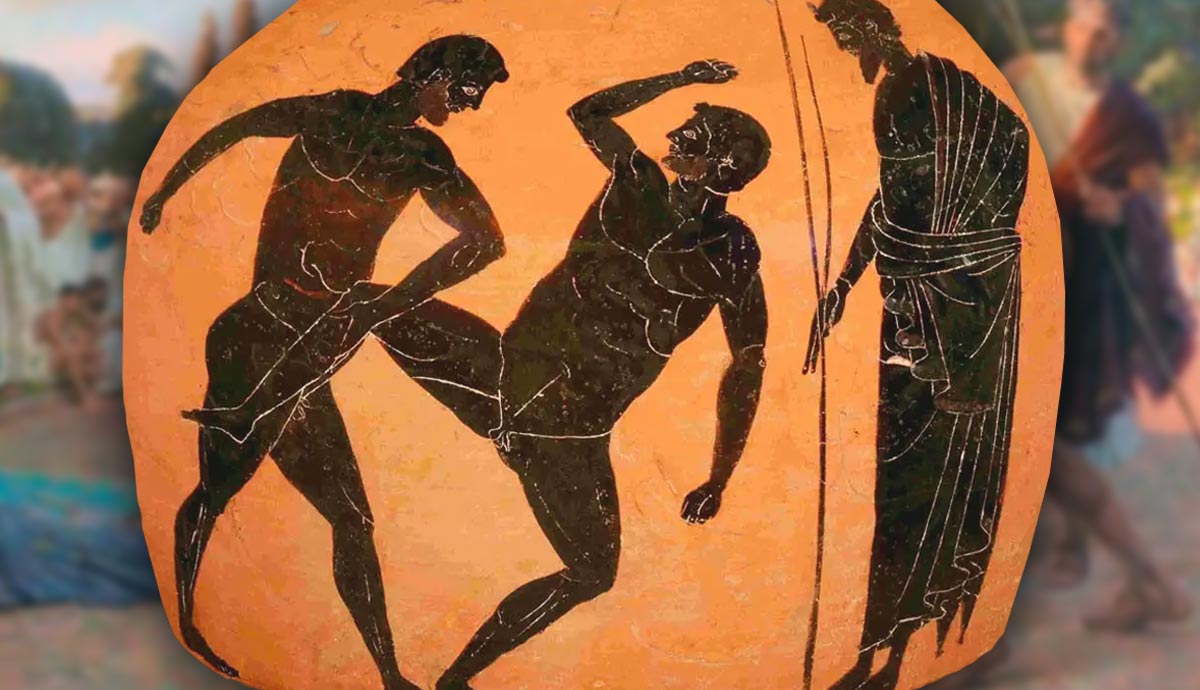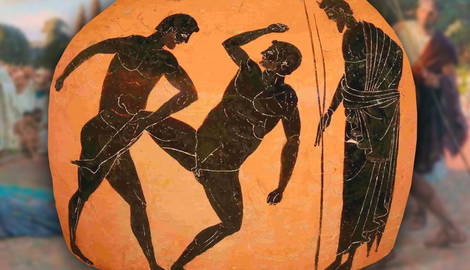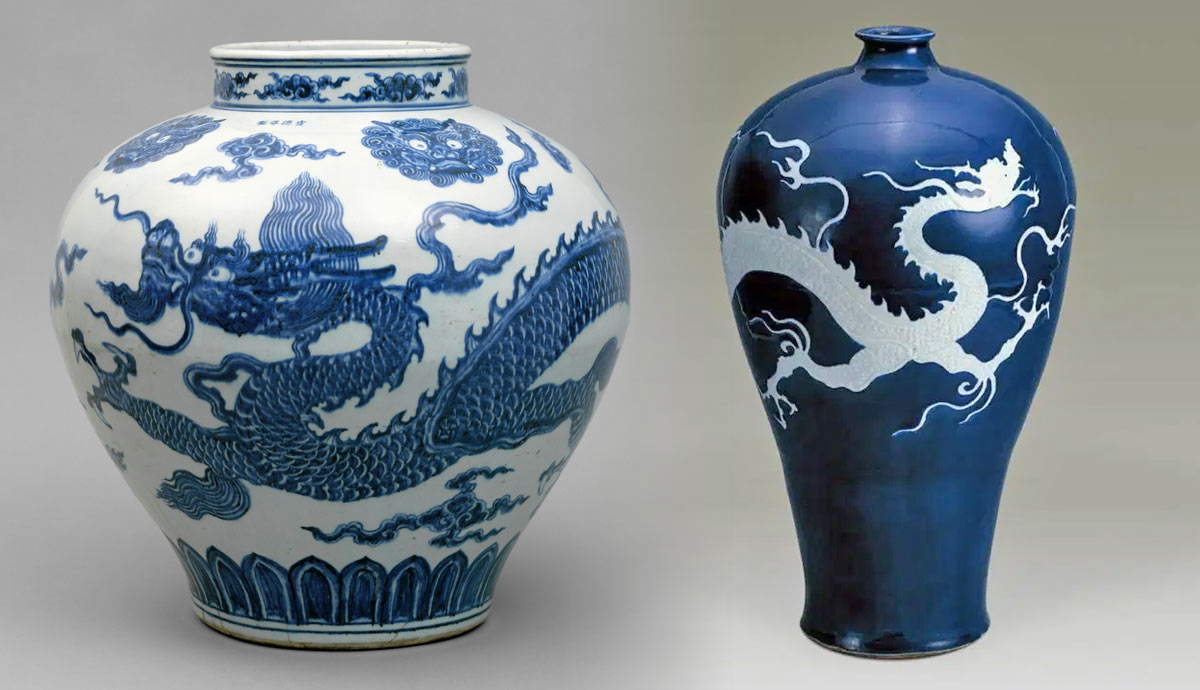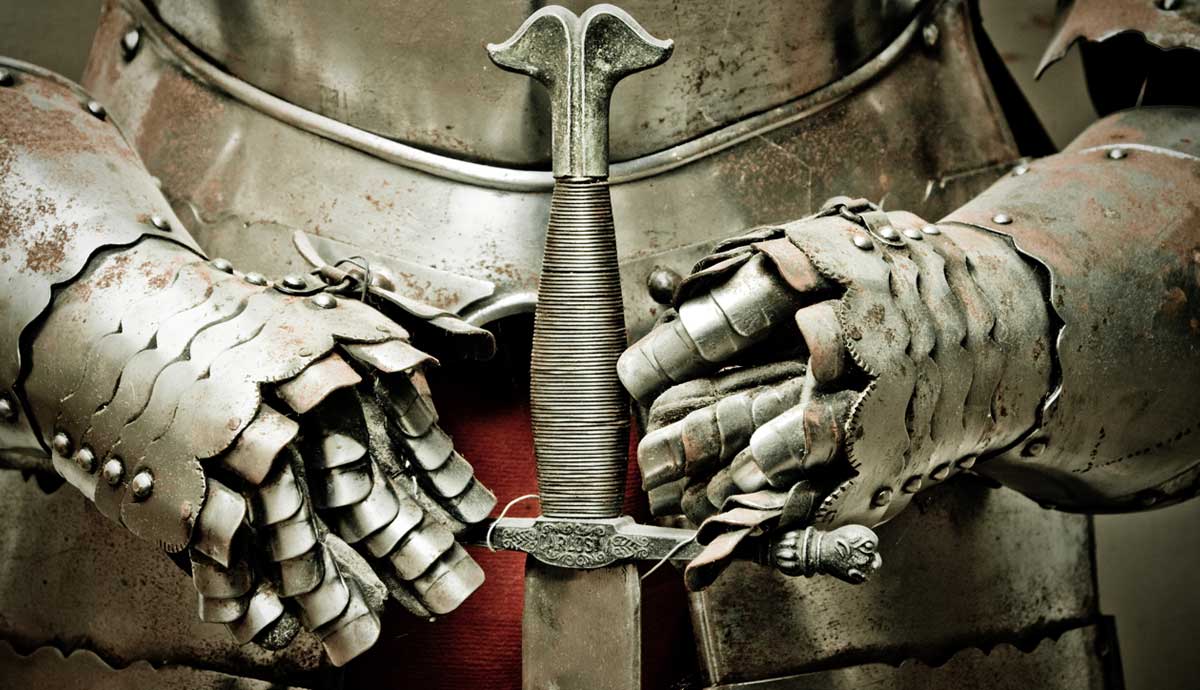
The Pankration – from “pan” meaning all, and “Kratos” meaning “powers” or strengths” – was an ancient Greek combat sport and the most popular event of the ancient Greek Olympics. This brutal, yet revered discipline was a highly sophisticated art, that attracted the most impressive athletes in the Hellenic world. The Pankration was the ultimate showcase of strength, technique, martial values, and competitive honor.
Origins of the Greek Pankration

The “heavy events” of the Ancient Olympics comprised three combat sports. Ancient Olympic Boxing, though brutal, was seen as an honest sport. Mutual respect and fair play were valued. Wrestling joined the games in 708 BC and too was regarded as a noble pursuit. The aristocratic philosopher Plato was a wrestler in his youth. Born with the name Aristocles, his wrestling coach, Ariston of Argos, dubbed him “Platon” (meaning “broad shouldered”) on account of his physique.
In 648 BC, boxing and wrestling were fused into the closest thing to no-rules, all-out hand-to-hand combat the world of sport has ever seen. The Pankration was a dangerous form of wrestling that allowed strikes, kicks, and grappling techniques, including upper and lower body joint locks and strangles. The only banned techniques were biting and eye gouging.
The Most Popular Ancient Olympic Sport

There is very little surviving information about the Pankration’s history (matches, competitions) and technical aspects. Much was allegedly lost in the destruction of the Library of Alexandria. However, despite scant information, it is widely acknowledged that the Pankration was considered to be the most popular Olympic sport in ancient Greece.
The discipline stood as the ultimate test of strength and technique, it remained an Olympic mainstay for centuries. Given its prestige, it likely attracted many of the greatest athletes in the Hellenic world. Champions became known as Olympionikai – the victors at Olympia, a most prestigious title. According to ancient Greek belief, each Olympic sport’s rules were devised by a hero or god. Pankration was said to have been invented by the Greek hero Theseus. According to legend, Theseus combined boxing and wrestling to defeat the Cretan Minotaur lurking within Knossos’s labyrinth.
A Sophisticated Art

The genesis of Pankration as a competitive sport likely stemmed from its obvious military applications. Many Pankratists were also soldiers. Notably, the Pankration was particularly popular amongst Spartans, who allowed biting and gouging in inter-city competitions, possibly as it formed a part of their general combat training. Historically, the Pankration evolved through two distinct stages in its history: the Ano Pankration (Upper Pankration) and the Kato Pankration (Lower Pankration). The former emphasized standing techniques, aiming to floor opponents with a blend of strikes, trips, and throws. Conversely, the latter focused on ground fighting and the aim of submission through strikes, joint manipulation, and strangles.
Contrary to the idea of Pankration as a brutal and crude fight to the death (though fatalities did occur), the Pankration was a refined art, encompassing sophisticated aspects of training, technique, and bio-mechanical knowledge and understanding.
The Most Famous of all Pankratists

The Pankration’s immense popularity elevated its champions to the status of demi-gods. None were more renowned than Arrichion of Phigaleia. Arrichion claimed victory at the 52nd and 53rd Olympiads (572 & 568 BCE), before meeting his demise while defending his championship at the 54th Olympiad (564 BCE). Legend recounts his final showdown: Arrichion’s antagonist caught him in a suffocating stranglehold from behind. As the “sleep of death” began to overwhelm his senses, Arrichion – loathe to give in – summoned the last of his reserves. He threw his weight to the left, seized his opponent’s foot, and snapped his ankle with a final burst of strength.
Unable to bear the pain Arrichion’s opponent submitted. However, still trapped in the stranglehold, Arrichion inadvertently snapped his own neck with his sudden forceful maneuver, meeting instantaneous death. His antagonist’s surrender nonetheless led to Arrichion’s victory. Arrichion epitomized the ultimate warrior ideal of the champion Pankratist: victory or death.










